Mindful Eating – Eating for the Body, with the Mind
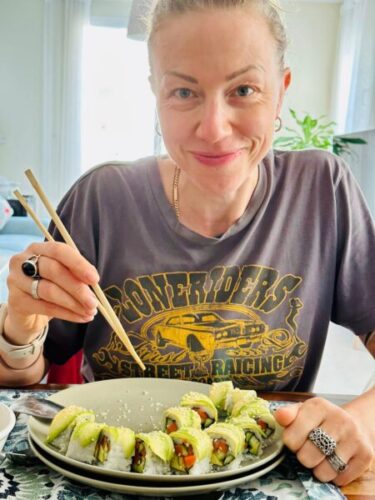
Is mindful eating, a daily investment for healthy life? Research suggests that trillions of dollars spent over healthcare could be used gainfully elsewhere, if only humans learnt how to eat mindfully. Does our relationship with food need to change – from compulsive and addictive to conscious and awakened? Read here how, experiment, enquire and decide for yourself!
Food – the building block of life
Food is essentially fuel for metabolic fire, the vital elixir for the primal life force. Fundamentally a reservoir of energy, food ‘burns’ in the metabolic fire to release energy and sustain life. Along with air and water, Maslow defines food as one of the most basic human needs. In ‘Eat, pray, love’, even Julia Roberts declares the act of eating to be as fundamental in life as love and prayer!
Now, one learns the basics of life best through experience, not through hearsay, right? Some years ago, as I studied Sports & Health in Germany, I underwent many different trainings and courses, and among them was nutrition. But before we dive into this, let me tell you about my relationship with food prior to this course. During my growing up years, my mother taught me how to eat healthy and gave me the freedom to choose my food. I loved food, relishing its flavor and fragrance. My mother also taught me to appreciate food, not take it for granted – she actually never spoke this out loud, but it was observable in her actions. My relationship with food grew to be profound and harmonious.
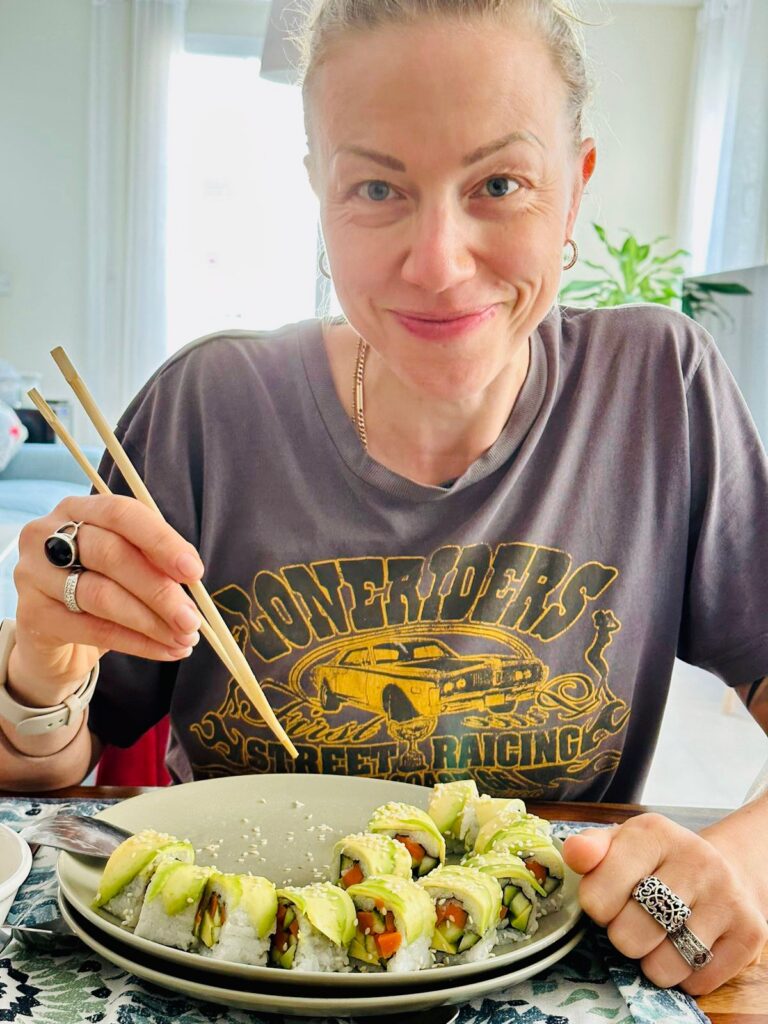
My Journey with Food – A profound life-changing experience
Now, back to the course on nutrition, I got introduced to a very different view of food. I was taught the western understanding of food. One major aspect taught was that calories matter, and that depending on our individual goals, we should eat a specific number of calories each day. If the goal is to lose weight, one should consume less calories than needed. On the other hand, if one intends to gain muscle (and hence gain weight), they should increase protein intake as well as calories. This is of course, very simplified, forgive me if I left out a couple of other factors. So, I saw food being somewhat reduced suddenly to calorie count – a sum of carbs, protein & fat. As I went through this course, deep inside I felt something fundamental might have been missed out.
Curious and inspired, I set forth to experiment and find the (my) truth about food.
I combined what I studied and what I knew from my own relationship and perspective about food – like eating with purpose, relaxed, and with sheer pleasure, eating to nourish my body, giving it what it needs and also at specific times. I wondered, if I felt like this, many must have felt and thought about this too. So I started to look around, and found many similarities in Ayurveda. Though, it was a bit too medicinal for daily use, i.e., it missed out the pleasure of food and eating.
The JaWa Diet – a comprehensive programme for mindful eating
While I lived in India, I experienced Ayurveda and found it very useful, especially to create a balance in one’s system and enhance physical health. I was happy to discover that other cultures, especially where Ayurveda originated, looked at food as food, not reducing it to calories. This was a great addition to my food knowledge. I self-studied Traditional Chinese Medicine, with a Chinese doctor in 2000, approaching the subject to understand what is the best way is to support people in their way of eating. I can tell you; I truly appreciate science in the western world, and what it has made possible for us humans. However, I was determined and very sure that there is more about food and a way of eating than seeing it either as an adversary or to enhance our cosmetic appearance.
I felt the need for a method to create a healthy, loving, and respectful relationship with food. As a result of not finding a way of eating / diet which helps people individually, and not dictating them what they have to eat, I created JaWa Diet in 2008.
Need versus Wants
With economic progress, communities moved from survival mode to varying degrees of comfort and affluence. In the 21st century, on the one hand a significant portion of humanity still struggles for survival with countless souls sleeping hungry. On the other hand, a large chunk of human populace is increasingly spoilt for choice. Daily provisions have never been so well arranged, ever! With each passing day, as the mushrooming supermarkets make our daily lives more convenient, it is time to distinguish ‘needs’ from ‘wants’.
If you look closely, ‘need’ is of the body, and ‘want’ is of the mind. This is where conscious or mindful eating comes into the picture. The much-needed awareness to have the distinction between eating for sustenance as per need, versus eating to gratify the senses – what the palate wants! The palate simply wants what the mind has been conditioned through the years to crave. Interestingly, the body gets used to even unhealthy food, if we ask for it. For instance, eating sweets and getting a high, due to the increased sugar in the body. We need to be very careful – the mind as well as the body can trick us!
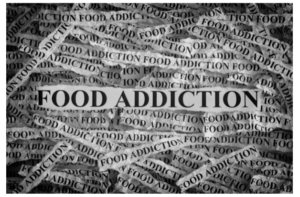
However, there cannot be a ‘one-size-fits-all’ approach. That is my whole point. Like a teenage student’s dietary needs differ from that of a retired octogenarian. Similarly, a farmer ploughing the fields would need to eat differently than a software engineer leading a sedentary lifestyle. So, our own due diligence is required to arrive at the nutritional need – keeping in consideration one’s profession, daily physical schedule, age, energy requirement, body constitution and more.
Our relationship with food
Now, an increasing number of people are finding themselves in a ‘love-hate’ relationship with food. They want to eat what they do not need. The body is capable to handle what it needs. What the mind wants, however, usually gets deposited around the waist! Then as a consequence, they lose wealth to gain health. Food addiction is emerging as the key reason behind mental or emotional needs.
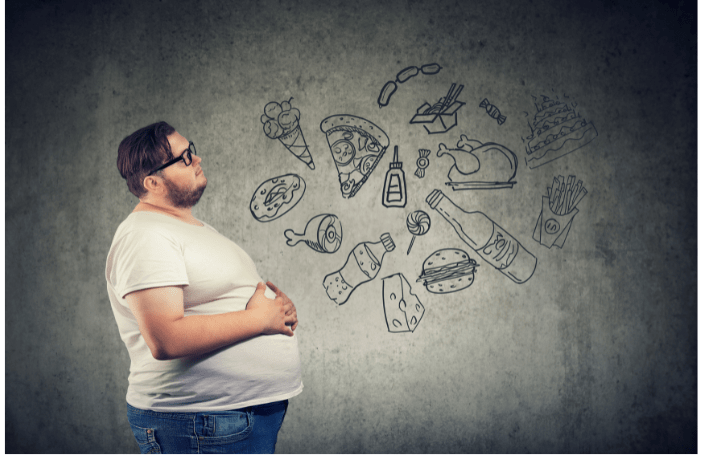
Reflect on the life around you. Fast paced life coupled with lack of awareness, compels people to look at food as a lifeless commodity – something to be picked off the shelf and stuffed mindlessly inside our bodies. Food is nowadays more a recreational activity, or an occasion to socialize when feeling alone, or many other reasons in our minds.
As we discovered in this article that only counting calories and ignoring the rest is not sustainable. ‘Eating as per appetite’ is not as simple to practice as it sounds. But with practice everything is doable and then it gets easy. Over the preceding decades, it seems that mindful eating has not been given enough emphasis and hence has not made its way as a life style choice for most.
As mentioned earlier, me and my team researched and experimented to develop the JaWa Diet, which is a combination of science, requirements of contemporary lifestyles, and the essence of intrinsic wisdom about food. To reach the goal let me assure you it is very much achievable. You start from where you are and step by step you will detox your taste buds, learning to read triggers from the mind, dealing with emotional needs differently, and then finally transition to mindful eating. Knowing the how, what, and how much, cannot be that arduous, after all. Don’t you think?
Awareness & Observation – the key to Mindful Eating
“Natural and easy to digest food should be eaten to fill half the stomach, easting thus consciously and with pleasure, leaving the other half of the stomach empty is called Mitahaar“ (moderate or balanced food). This is a translated samskrit verse and summarizes succinctly, the essence of ancient oriental wisdom on nutrition. I find truth in it, especially to eat so that your stomach would not be completely filled up. And to do so you need awareness and mindfulness, do you agree? It is thought provoking, considering the fact that we live in a world with a 24/7 and ubiquitous food availability. But now we have to ensure, that this should not work against us.
Mindful eating is rooted in an awakened or conscious living. It begins with understanding oneself. This is where the ancient principles provide comprehensive guidance. Knowing one’s body constitution and dominant qualities, prepares the foundation for conscious eating.
And as said, we should not be ignorant but intelligent, making use of what science offers. Whatever our ancestors practiced may not be relevant for today’s world, simply put this could be a useless comparison. We live far longer lives, just to give one example. Talking about technology and science, we need to utilize it. Like undergoing blood tests regularly, to see what we cannot feel – what is going on in the body when it comes to macro and micronutrients, and more. You see, there is far more to eating than you might have thought!

A word about the freshness, origin of food and eating meat
I truly believe in fresh, seasonal food, and ideally without or with the least preservatives. Once again, you should experiment for yourself and see. Consume freshly cooked meals derived from locally grown produce (seasonal food). Eating meat or not, being a vegetarian, vegan or omnivores. I would say to each his own. I am a vegetarian, shifting to vegan – means not consuming dairy products. For more than a year now I have not consumed cow milk. And it feels right – mentally, emotionally and physically.
I cannot tell you what and what not to eat – that’s the entire philosophy of JaWa Diet. But we encourage and guide to check in with your own system for one or two weeks. Keep a log and observe how you feel before and after eating –heavy or light, bloated or just normal, drowsy or energetic? These are all indicators to eat what you need, not what you want. Your body actually tells you everything, you just need to pay attention!
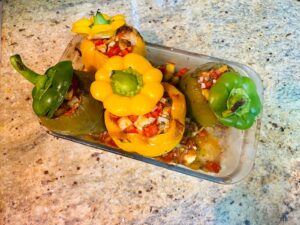
You are what you eat – food for thought
Do you need to ponder over mindful eating?
Take a moment to reflect on the below. How is your experience in each of the listed situations?
- When did you feel really hungry the last time – real physical and extreme hunger?
- During your meals, are you glued to your phone screen? Do you find food and the act of eating worthy of your attention or do you think eating is a mechanical process to be repeated few times a day?
- Have you ever realized how different you feel after a light meal versus after a hefty feast? Do you notice that your sleep is not as good after a late and heavy dinner?
- Have you been off caffeine and observed the change in the thought pattern & sleep quality?
- If you cannot specifically tell the time the food item was alive, best not to eat it. It is life negating chemicals, presented as food, and will not be integrated within the body easily. As an experiment, you can stay off packaged food for a few weeks and see if there is any difference.
After a meal, if inordinate amounts of energy have to be spent digesting food, our system cannot allocate enough energy either for the clean-up of the body or assimilating the food that has entered the mind. Thoughts that kept doing the rounds during the day must be reconciled at bedtime. This is possible only if the entire energy in not consumed in digestion. We can resolve our mental anguishes and sharpen our intellect best if we eat a light dinner, easy for the system to process. When we eat mindfully, we slow down and pay attention to what we are eating. We take notice of our hunger levels, our fullness cues, and the flavors of the foods we are eating, as well as the textures and smells.
I wholeheartedly encourage you to experiment, observe for yourself and draw your own conclusions.
Gratitude – all the way

When a platter of wholesome meal appears in front of us, how do we look at it? Do we see the many hands that made it possible for us? Right from the farmer to the local vegetable vendor, do we see how many fellow humans conspired favorably to make it happen? Do you realize that it is not by default to have food in front of you? If you come to think of it, your heart and mind surely would swell up with gratitude, yes? While there are countless deprived souls who could be sleeping hungry tonight, I was fortunate that the universe made the food plate appear in front of me. How could I not be grateful for this, just another day in paradise!
Only when we disentangle from the compulsions of the basal, can we truly understand how privileged we are. I wish you great eating experiences and hope that this article will help you to create an even stronger, more beautiful relationship with food!
Happy and mindful eating, Jasmin

